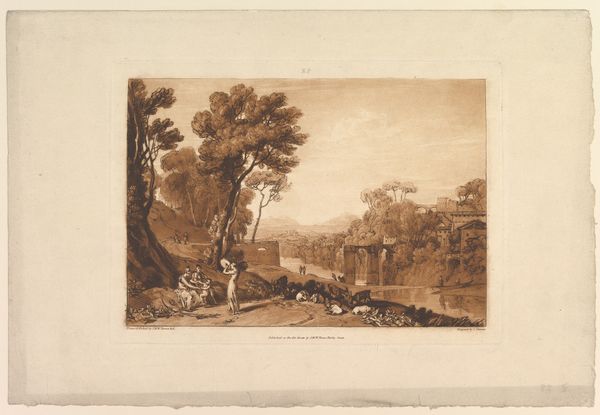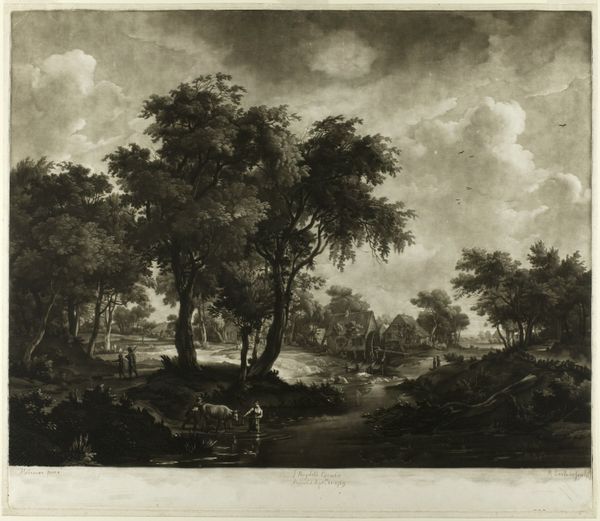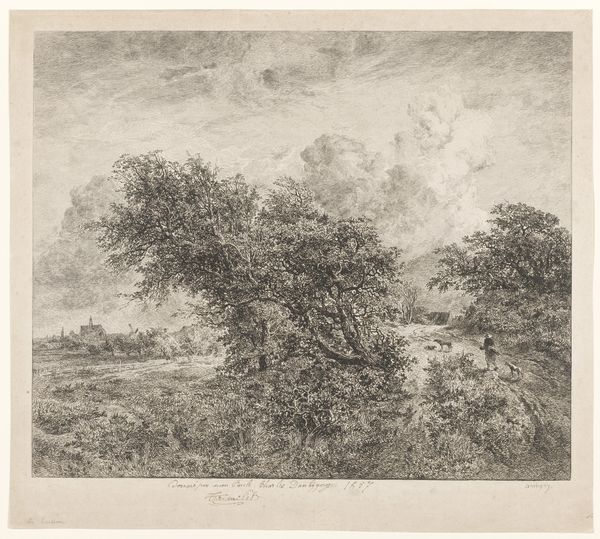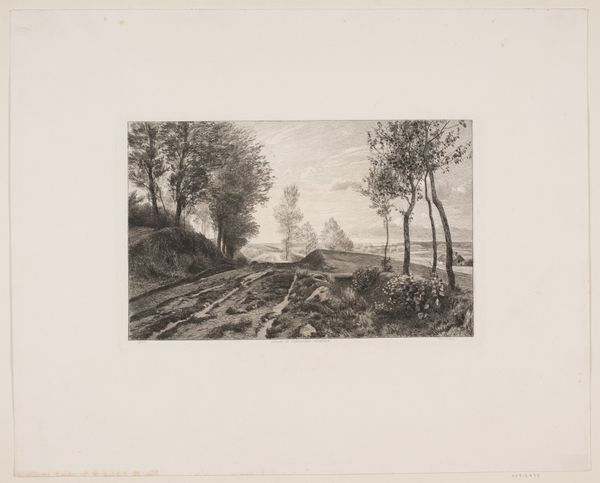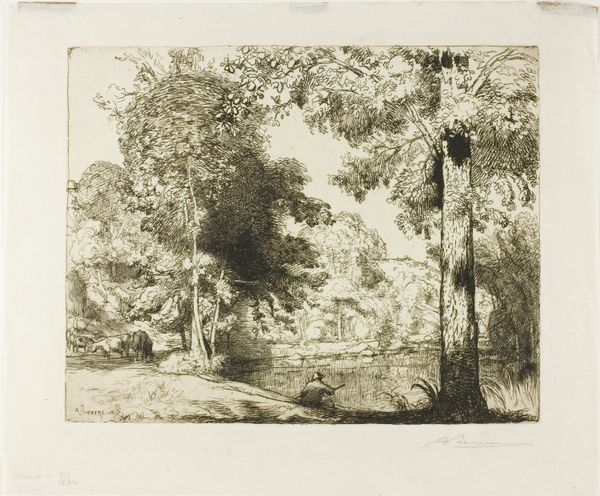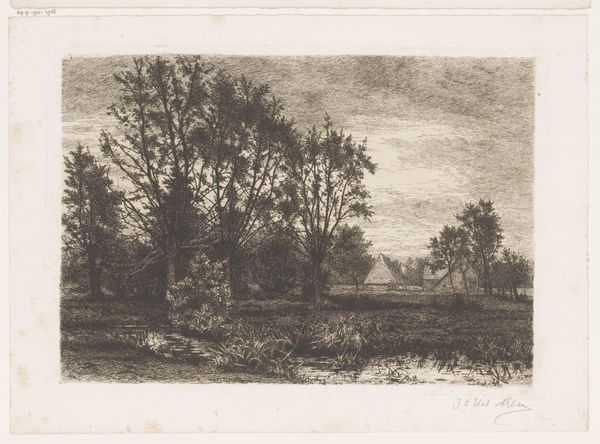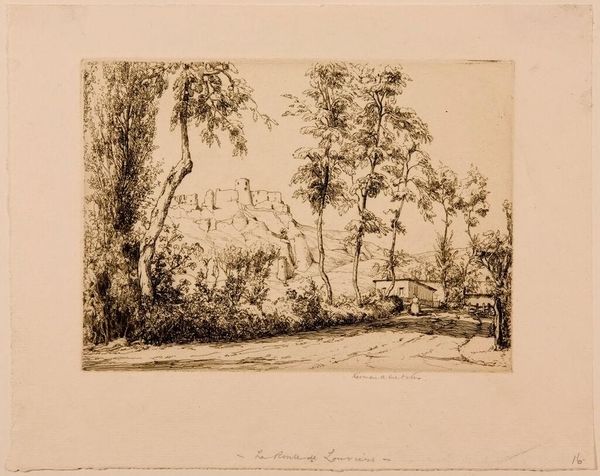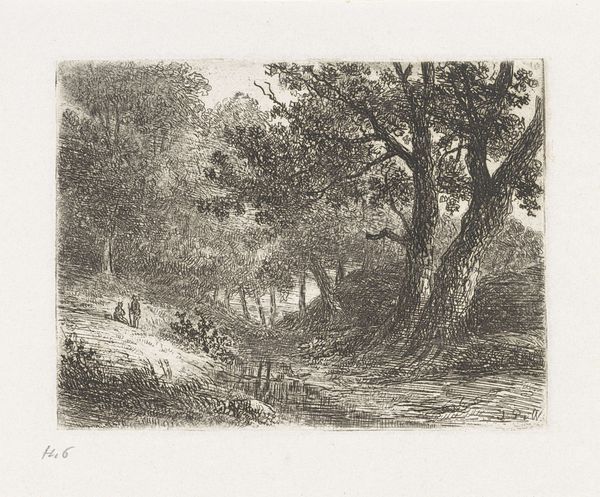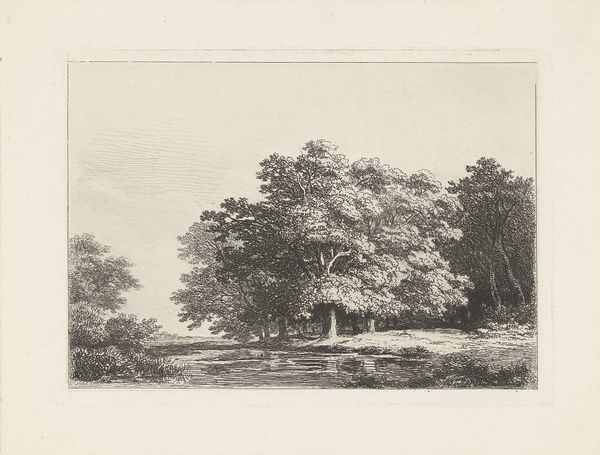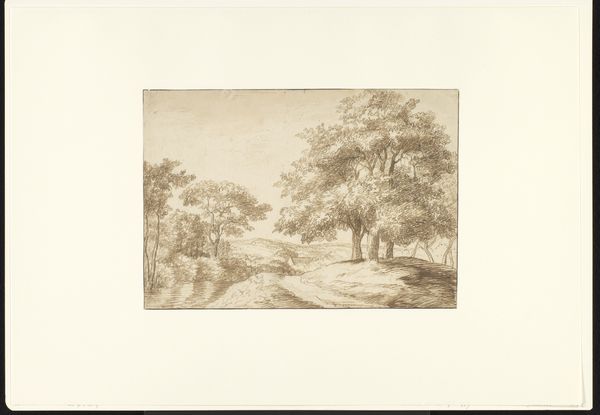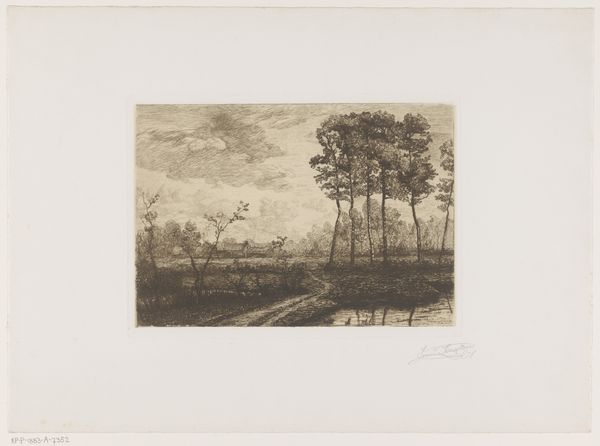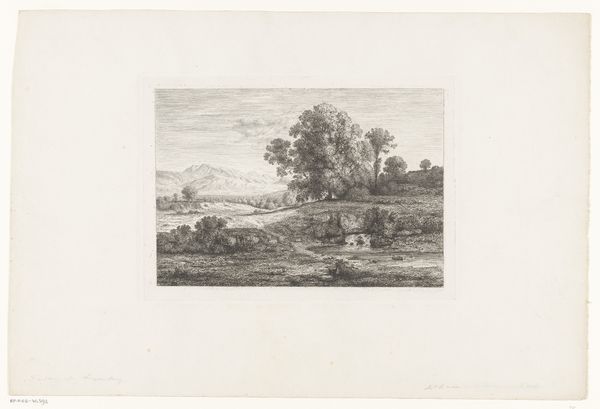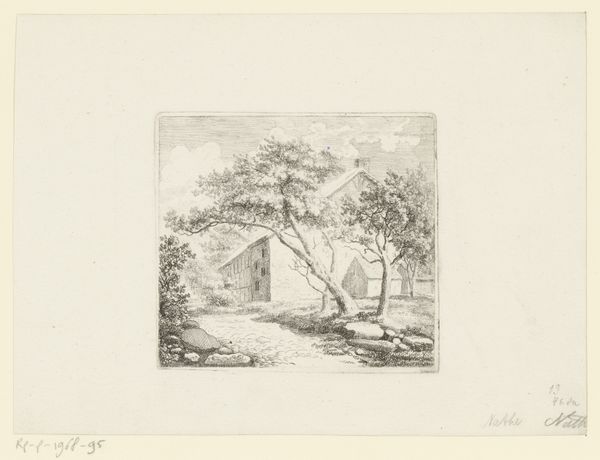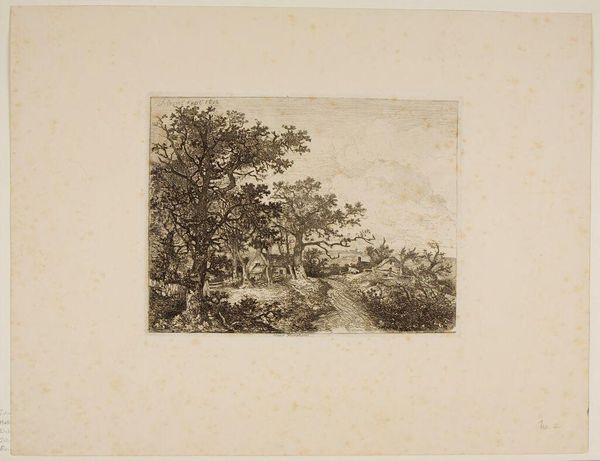
Solitute, plate 53 from Liber Studiorum Possibly 1814
0:00
0:00
drawing, print, etching, paper
#
drawing
# print
#
etching
#
landscape
#
paper
#
england
#
charcoal
Dimensions: 179 × 260 mm (image); 210 × 289 mm (plate); 266 × 382 mm (sheet)
Copyright: Public Domain
Editor: We're looking at J.M.W. Turner’s "Solitude," plate 53 from *Liber Studiorum*, possibly from 1814. It's an etching, a print, and a drawing on paper, all in one. The sepia tones give it a dreamy quality, but something about the broken tree on the right feels a bit melancholic. What do you see in this piece? Curator: Immediately, the symbolic weight of the landscape resonates. Notice how Turner situates the castle—a symbol of established power and perhaps the past—in the hazy distance, almost swallowed by the light. Meanwhile, in the foreground, we have this gnarled, fractured tree you mentioned. Editor: The one that looks like it might fall any second? Curator: Exactly! Consider that image alongside the reclining figure. Is it someone finding solace, or are they isolated? Turner masterfully presents us with these dual possibilities, asking us to consider the human condition against the backdrop of time and history. The very title *Liber Studiorum* suggests it’s meant to be a book of studies. What does that tell you about Turner's intent? Editor: Maybe that it’s meant to provoke thought, not just to be beautiful? To almost guide us? Curator: Precisely. Each element—the light, the distant structure, the broken tree, even the reclining figure—becomes a kind of hieroglyph, pregnant with meaning. It's a fascinating commentary on permanence and fragility, wouldn't you agree? Editor: Definitely. I initially just saw a pretty landscape, but now I see all these layers of meaning packed into it. Thanks for pointing those out! Curator: And thank you for bringing your insightful observations to this space. It’s by unpacking those layers that we keep these images, and the cultural memory they carry, alive.
Comments
No comments
Be the first to comment and join the conversation on the ultimate creative platform.
